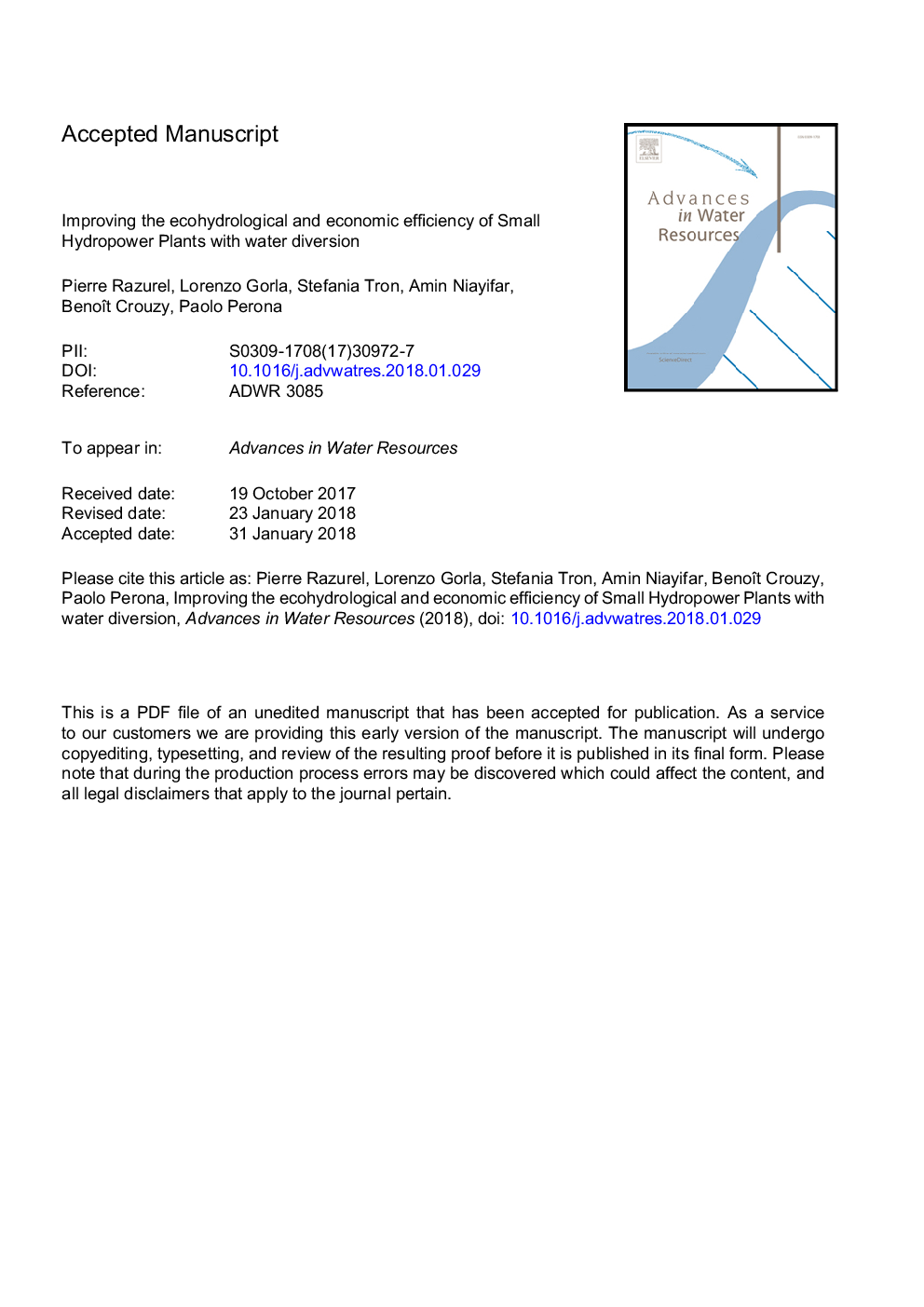| Article ID | Journal | Published Year | Pages | File Type |
|---|---|---|---|---|
| 8883362 | Advances in Water Resources | 2018 | 29 Pages |
Abstract
Water exploitation for energy production from Small Hydropower Plant (SHP) is increasing despite human pressure on freshwater already being very intense in several countries. Preserving natural rivers thus requires deeper understanding of the global (i.e., ecological and economic) efficiency of flow-diversion practice. In this work, we show that the global efficiency of SHP river intakes can be improved by non-proportional flow-redistribution policies. This innovative dynamic water allocation defines the fraction of water released to the river as a nonlinear function of river runoff. Three swiss SHP case studies are considered to systematically test the global performance of such policies, under both present and future hydroclimatic regimes. The environmental efficiency is plotted versus the economic efficiency showing that efficient solutions align along a (Pareto) frontier, which is entirely formed by non-proportional policies. On the contrary, other commonly used distribution policies generally lie below the Pareto frontier. This confirms the existence of better policies based on non-proportional redistribution, which should be considered in relation to implementation and operational costs. Our results recommend abandoning static (e.g., constant-minimal-flow) policies in favour of non-proportional dynamic ones towards a more sustainable use of the water resource, also considering changing hydroclimatic scenarios.
Related Topics
Physical Sciences and Engineering
Earth and Planetary Sciences
Earth-Surface Processes
Authors
Pierre Razurel, Lorenzo Gorla, Stefania Tron, Amin Niayifar, Benoît Crouzy, Paolo Perona,
